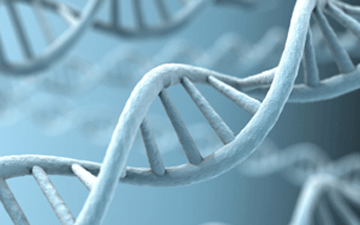
Madeline Eiken was a Hackworth Fellow for the 2018-2019 school year. She graduated from Santa Clara University in 2019 where she majored in bioengineering and minored in chemistry. She was awarded the Ethics Center Markkula Prize in June 2019. She currently works at Allosource, a tissue bank in Colorado.
Ethics asks us to carefully consider what is right-making and wrong-making about what we do and the choices we make.
We live at a time of increasing technological power, a time when ethics compels all of us to meaningfully engage with science and technology to create a just world in which all can thrive. Our ethical considerations include a variety of stakeholders, so it is important that the general public, as well as scientists, engage in discussion about ethical issues. Ethics gives non-scientists a reason to care about complex scientific advances, and it gives scientists a reason to engage in the public square. Jennifer Doudna, one of the inventors of CRISPR genome editing technology, said that the social implications of this technology “yanked her out of the ivory tower” and spurred her to engage with the ethical and social implications of her work.
The three case studies here represent interesting situations that a bioengineer, biologist or biochemist may encounter in their professional lives. Students in these disciplines must be prepared to engage with ethical issues that arise during their education and in their future professional lives. By thinking about and discussing these case studies, students can cultivate ethical patterns of thought prior to leaving academia and professionals can carefully consider the ethical implications of their work. These case studies are accessible to non-scientists as well, enabling us all to think carefully about potential applications of current cutting-edge technology and practices.
As you consider the ethical issues displayed in these cases, you may want to use an ethics framework such as A Framework for Ethical Decision Making available from the Markkula Center for Applied Ethics.
My hope is that these case studies and the questions embedded in them generate rigorous thought and lively conversation, whether in the classroom, at the lab bench, or around the dinner table.
Up, Up, and Away: Clinical Trials Go International
What are the ethical implications of conducting clinical trials in developing countries?
CRISPR: Next-Gen Mosquito Zapper?
Is it ethical to eliminate native populations of disease-carrying pests through genetic manipulation?
The Case of the Missing Kidneys
While organ donation is necessary to alleviate suffering and save lives, questions of autonomy, coercion, and the yuk factor deserve careful consideration as we seek to increase supply in the face of unrelenting demand.